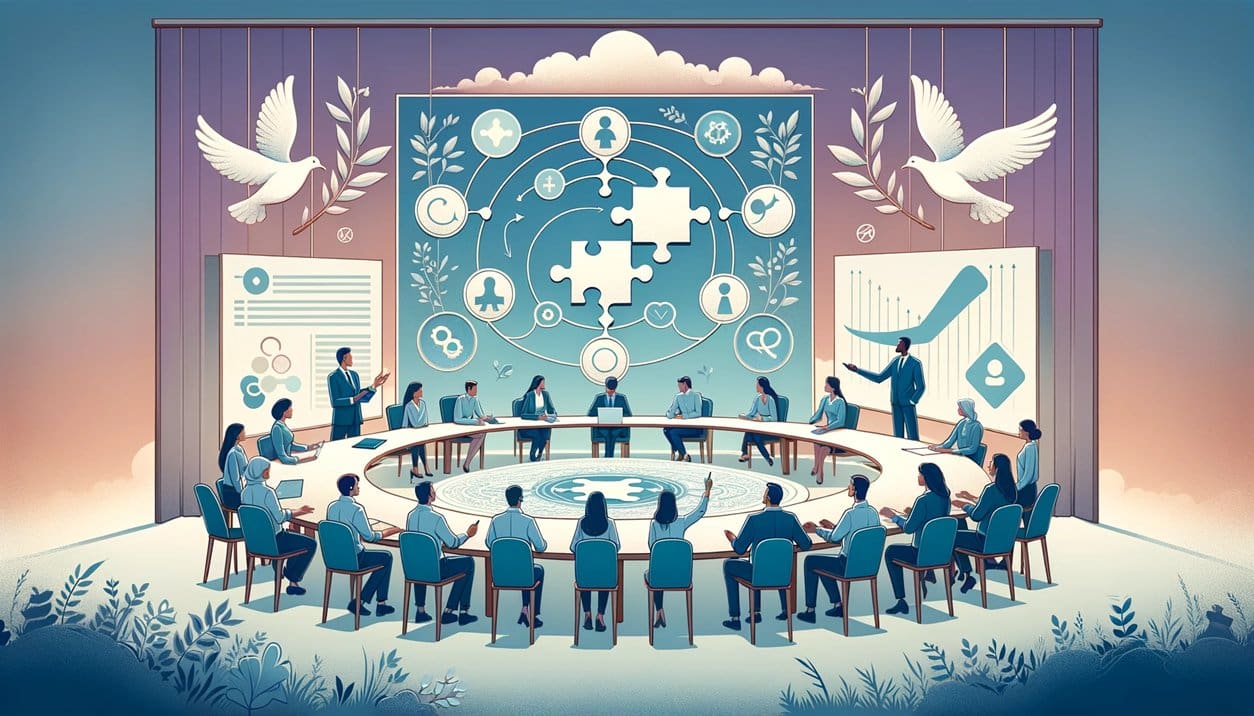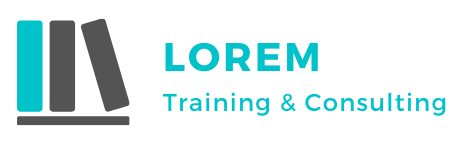INCLUSION AND CONFLICT MANAGEMENT
"True belonging doesn't require you to change who you are; it requires you to be who you are. Diversity asks, ‘Who's in the room?’ Equity responds: ‘Are they listened to?’ Inclusion asks: ‘Have everyone's ideas been considered?’ Conflict management answers: ‘Is the team’s harmony preserved?’" - Brené Brown (adapted)
Welcome to our Inclusion and Conflict Management Training Programs, where we focus on creating more inclusive workplaces and equipping professionals with the skills to manage and resolve conflicts effectively.
These programs are essential in today's globalized business environment, where diverse teams and varying perspectives can both enrich and challenge the dynamics of collaboration.
By fostering an inclusive culture and enhancing conflict resolution skills, organizations can not only improve productivity but also employee satisfaction and retention.
Why Inclusion and Conflict Management Are Important
The increasing diversity of the global workforce and the complex interdependencies within workplaces necessitate effective strategies for inclusion and conflict management.
These programs are critical because they promote a workplace environment that capitalizes on diverse perspectives and maintains harmony among team members.
Importance of Diversity, Equity, and Inclusion (DEI)
Diversity in the workplace brings a plethora of perspectives and ideas, driving innovation and reflecting the global marketplace.
Equity ensures that all employees have access to the same opportunities, which is fundamental to retaining talent and maximizing employee potential.
Inclusion involves creating an environment where all employees feel valued and are able to participate fully.
- Enhanced Company Reputation: Organizations known for their commitment to diversity, equity, and inclusion are viewed more favorably by consumers and potential employees.
- Increased Creativity and Innovation: Diverse teams that are managed well tend to deliver more innovative results and have a broader problem-solving capacity.
- Better Decision Making: Inclusive teams make decisions up to 87% of the time that are better than decisions made by individual employees.
Importance of Conflict Management
Conflict in the workplace is inevitable due to differences in values, goals, needs, or expectations.
However, when managed properly, conflict can be a gateway to innovation, problem-solving, and improved relationships among employees.
- Prevents Escalation: Effective conflict management prevents disputes from escalating into more significant problems that can affect morale and productivity.
- Promotes Accountability: Encourages individuals to acknowledge their roles in conflicts and work towards resolution.
- Improves Team Dynamics: Properly managed conflicts can strengthen trust and cooperation among team members.
Benefits of Inclusion and Conflict Management Training Programs
Our Inclusion and Conflict Management Training Programs offer a range of benefits designed to enhance organizational culture and interpersonal relationships:
1. Diversity, Equity, Inclusion
- Cultural Competency: Participants gain an understanding of different cultural contexts and how these affect perceptions, behavior, and interactions.
- Bias Recognition and Management: Training helps individuals recognize their own biases and develop strategies to mitigate their effects on decision-making.
- Regulatory Compliance: Helps organizations comply with local and international laws regarding workplace diversity.
2. Conflict Management
- Conflict Resolution Skills: Employees learn how to handle conflicts constructively, without causing or escalating tensions.
- Communication Skills: Enhances communication techniques that are critical in identifying and resolving conflicts, including active listening and effective questioning.
- Stress Management: Participants learn how to manage stress that often comes with conflicts and can learn techniques to remain calm and collected.
Program Structure and Methodology
Our training programs are structured to provide both theoretical knowledge and practical skills through a variety of learning methods:
- Interactive Workshops: These sessions involve role-playing, simulations, and group discussions that allow participants to practice new skills in a safe environment.
- Case Studies: Real-world scenarios are used to illustrate how diversity and conflict management strategies can be implemented effectively.
- Expert Facilitation: Programs are led by experts with extensive experience in DEI and conflict management, providing valuable insights and guidance.
The Inclusion and Conflict Management Training Programs are vital for any organization looking to thrive in today’s diverse and fast-paced business environment.
By investing in these programs, companies can not only foster a more inclusive culture but also equip their employees with the skills necessary to handle conflicts efficiently.
These competencies are crucial for maintaining a harmonious workplace where all employees can contribute to their fullest potential.
Join our programs to transform your organizational culture, promote inclusivity, enhance collaboration, and effectively manage workplace conflicts.
With our expertly designed modules on Diversity, Equity, Inclusion, and Conflict Management, you are well on your way to creating a resilient, innovative, and dynamic workplace.
DIVERSITY EQUITY INCLUSION (DEI) TRAINING

What It Is:
Diversity, Equity, and Inclusion Training is designed to educate and inspire employees at all levels of an organization to appreciate and capitalize on diversity while fostering an inclusive workplace where everyone feels valued and integrated.
This comprehensive program delves into the nuances of cultural differences, the importance of equitable practices, and the strategies for nurturing an inclusive environment that embraces diversity in all its forms.
Importance:
In today's global business environment, DEI is not just a moral imperative but a competitive advantage.
Organizations that prioritize DEI are better equipped to attract top talent, retain employees, understand customer needs, and innovate.
DEI training helps mitigate biases, breaks down barriers to inclusion, and promotes a deeper understanding of diversity-related challenges and opportunities within the workplace.
It also prepares companies to better navigate the social complexities of their diverse workforces and customer bases, thereby enhancing overall business performance.
Who It Is For:
- HR Professionals and Diversity Officers: To develop and implement effective DEI strategies within their organizations.
- Team Leaders and Managers: To cultivate leadership practices that support diversity and inclusion.
- All Employees: To contribute to a respectful and inclusive workplace culture.
- Senior Executives: To lead by example and integrate DEI principles at the highest levels of corporate strategy and operation.
Benefits:
- Improved Workplace Culture: Fosters a sense of belonging and respect among employees, which enhances morale and employee satisfaction.
- Increased Innovation and Creativity: Diverse teams bring a variety of perspectives that can lead to innovative solutions and ideas.
- Enhanced Company Reputation: Being known for a strong commitment to DEI can enhance brand perception and loyalty among customers.
- Greater Employee Retention: Inclusive companies have lower turnover rates, as employees feel valued and are more likely to stay long-term.
- Better Decision-Making: Diverse groups are better at problem-solving and making decisions because they consider a wider range of perspectives.
Program Details:
The training typically begins with a foundational overview of DEI—defining key terms and concepts and exploring the moral, ethical, and business cases for diversity, equity, and inclusion.
Participants are then guided through the historical and social context that shapes current DEI challenges and opportunities.
Core Components:
Understanding Diversity:
- Types of Diversity: Explores a broad spectrum of diversity, including race, gender, age, sexuality, disability, and cultural background.
- Implicit Bias Training: Helps participants recognize and mitigate unconscious biases that can influence decision-making and interactions.
Promoting Equity:
- Equity vs. Equality: Distinguishes between equity (fairness and specific needs) and equality (sameness and uniformity).
- Systemic Barriers to Equity: Identifies and discusses ways to dismantle barriers that prevent fair treatment and equal opportunity in the workplace.
Fostering Inclusion:
- Inclusive Leadership: Techniques for leaders to create an environment where all employees feel listened to, respected, and motivated.
- Cultural Competency: Skills for understanding and appropriately responding to the cultural contexts of others’ behaviors and needs.
Workshop Activities:
- Interactive Discussions: Facilitated dialogues that explore sensitive topics in a constructive and respectful setting.
- Scenario-Based Role Plays: Simulated interactions that challenge participants to apply DEI principles in complex situations.
- Group Projects: Collaborative tasks that require integrating diverse perspectives to develop solutions to hypothetical organizational challenges.
- Personal Reflection Exercises: Opportunities for self-assessment regarding biases and behaviors that might impact workplace interactions.
Diversity, Equity, and Inclusion Training is essential for organizations seeking to thrive in a multicultural world.
This training equips participants with the knowledge and skills to create and sustain environments where diversity is valued, equity is sought, and inclusion is practiced.
By embracing DEI, companies not only enhance their operational effectiveness but also contribute to a more just and equitable society.
CONFLICT MANAGEMENT


